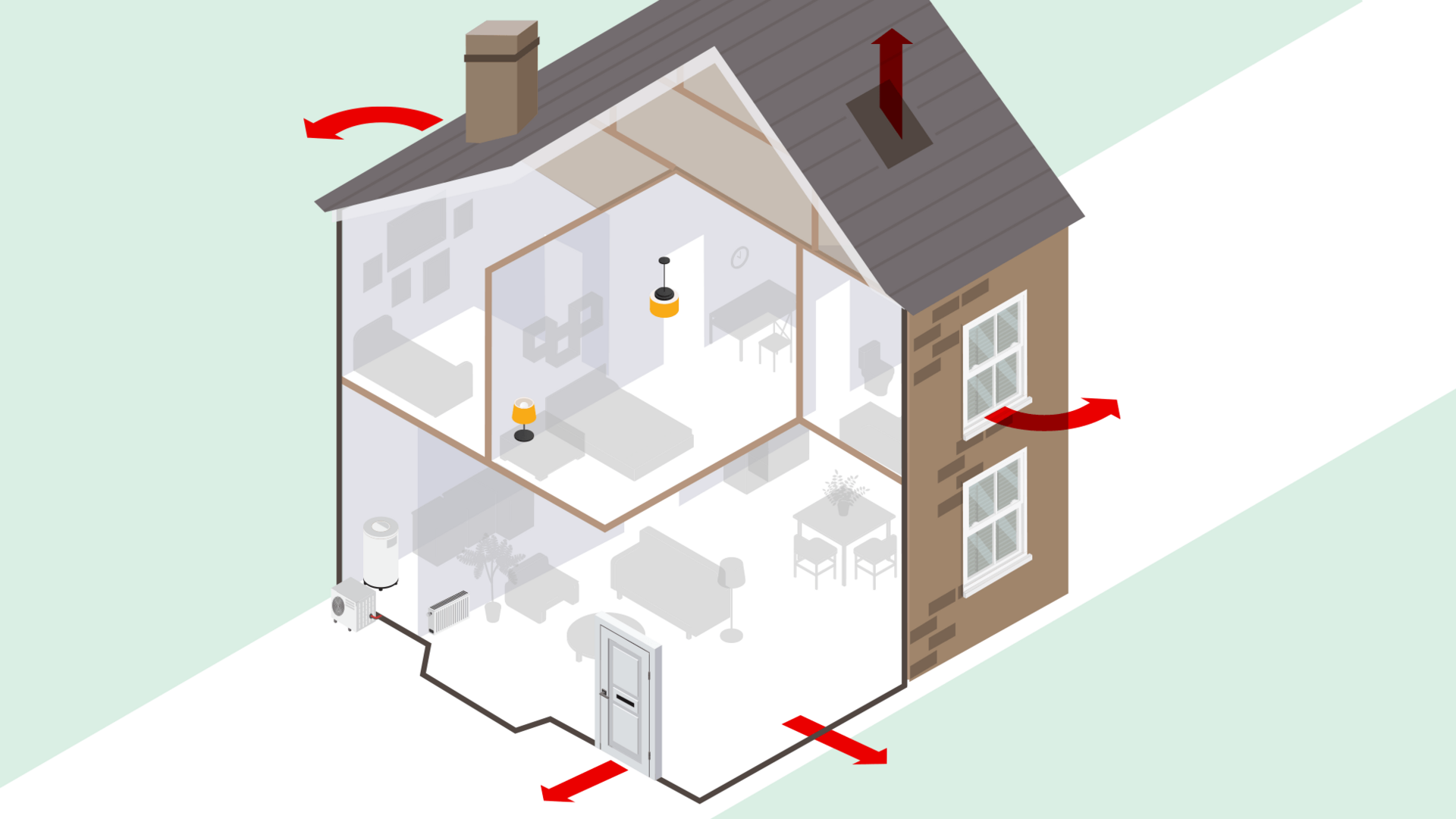How can I cut down on my energy bills?
- Published
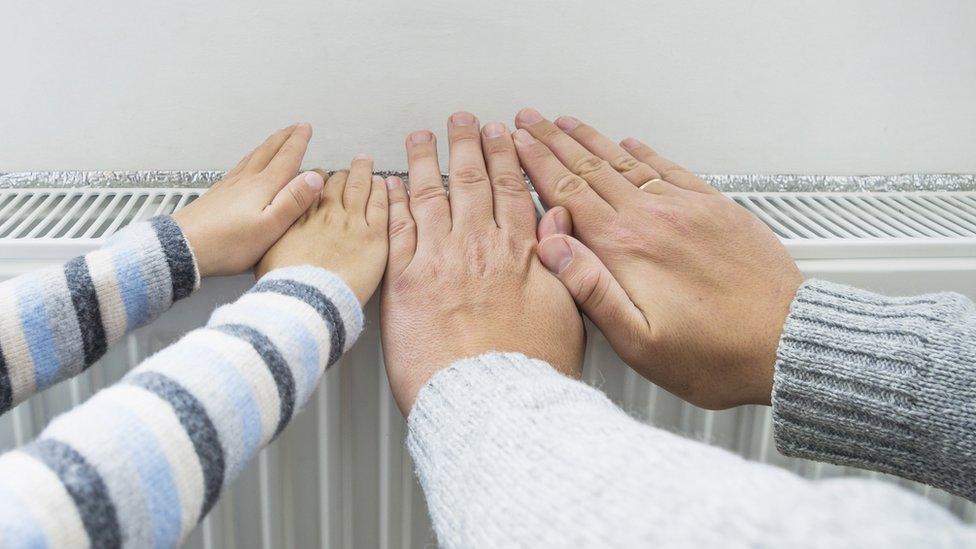
Gas and electricity bills have already risen significantly this year and for some customers further price increases are expected
There is a tough winter ahead for many households due to rising energy bills, according to the Northern Ireland Consumer Council.
Gas supplier Firmus Energy has just announced a 38% price increase which will affect about 55,000 customers - it is the firm's third price rise this year.
Wholesale energy prices are at an all-time high, leading to more expensive electricity and home heating oil bills.
What steps can we take to save energy and save money on household bills?
Turn down your thermostat
No-one wants to be cold in their own home but could you be using more energy than you need to stay comfortable?
Turning your central heating down by one degree could cut your heating bills by up to 10%, according to the NI Direct government website, external.
It also suggests closing curtains at night to keep the heat in and trying to not block radiators by placing furniture up against them.
Asked for his top energy saving tips, the Consumer Council's head of energy Raymond Gormley also suggests adjusting your thermostat.
"Recently, with the time clock changing, that was an opportunity to re-evaluate how often you put the gas on for," he says.
"Thankfully at the minute we have milder temperatures so we shouldn't be using that much."
In its 2018 guide for home energy users, external, the Consumer Council said turning down your thermostat by 1C "can save around £90 a year".
If there are parts of your home which do not get much use, it could be worth fitting thermostatic radiator valves, external which can help maintain cooler temperatures in empty rooms.

Central heating settings can be lowered during milder winter days to save money
Cut down on waste
Using heating systems and household appliances more efficiently or only when we need them is better for the planet as well as our pockets.
The NI Direct website and the Consumer Council have lots of tips on how to save money on day-to-day household tasks.
Laundry:
Wait until you have a full load to run your washing machine
Dry clothes outdoors when possible
Cooking:
Cover pots and pans with lids when using the hob
Only boil the amount of water you need when using a kettle
Up to 20% of heat is lost when you open an oven door so keep it closed when possible
Defrost fridges and freezers regularly and never leave the fridge door open
Lighting:
Switch the lights off every time you leave a room
Use energy efficient light bulbs - the NI Direct website claims if every UK home installed three "it would save enough energy to power all the UK's street lights"
For more household tips, you can contact the Northern Ireland Energy Advice Line on 0800 111 4455.
The not-for-profit charitable organisation Bryson Energy also arranges energy advice home visits, external for people facing fuel poverty which can help them to reduce their bills.
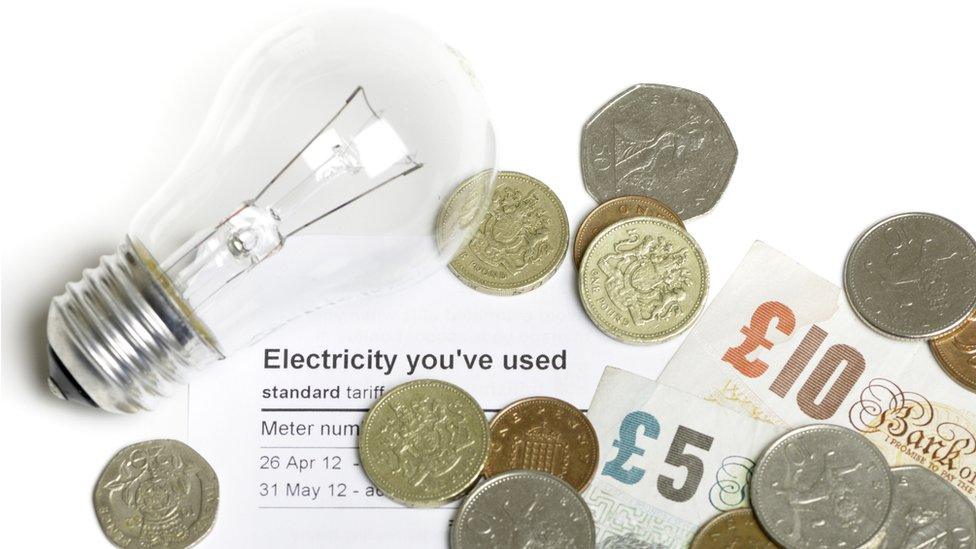
Shop around for the lowest price
If you regularly order a delivery of home heating oil from the same company, make sure you are being rewarded for your loyalty.
Northern Ireland has a number of price comparison websites for heating oil suppliers.
On Thursday morning, one site showed a £15 difference between the cheapest and most expensive quote for a delivery of 900 litres of oil.
The Consumer Council runs an online Home Heating Oil Price Checker, external service where you can check if your supplier is charging more than the average in your area.
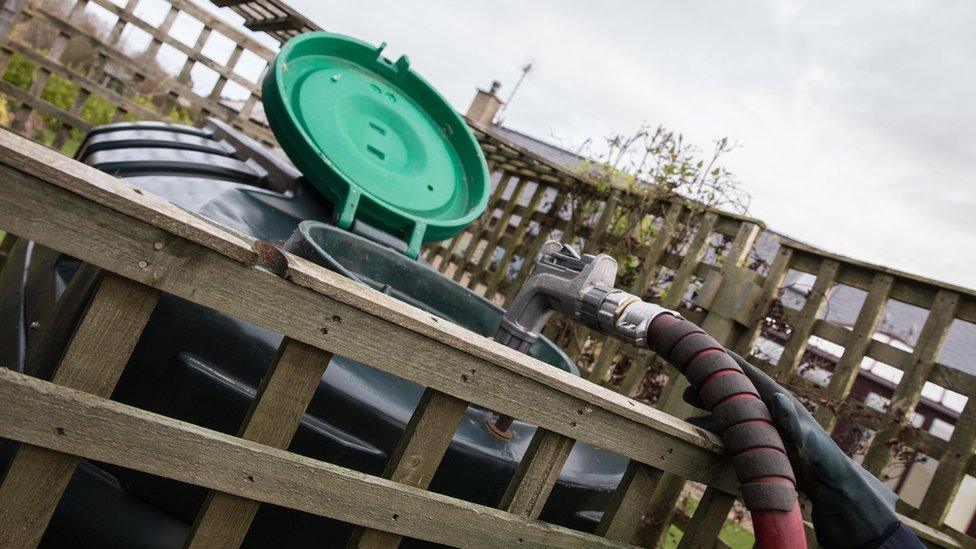
The price of home heating oil deliveries can vary by supplier and by location in Northern Ireland
Join an oil club
Like many commodities, buying large quantities in bulk often works out cheaper than buying smaller amounts at much higher rates.
Some community organisations have clubbed together so they can place larger orders of heating oil at the cheapest rate on behalf of hundreds of customers, who each then get small deliveries to their homes on a regular basis.
They include Duneane Oil Club in County Antrim - its chair Una Johnston says it is helping to relieve fuel poverty in her rural community.
"We have 300 members. They pay £5 a year for membership, that just covers us for phone calls and paper and things like that," she says.
"We have found it's made a massive difference to people who can't afford to buy large amounts of oil."
The minimum order for each member is 200 litres but Ms Johnston said buying larger amounts as part of a collective was much more cost effective for members.
"The bigger the amount you can afford to order, the less it's going to cost you."
Switch your energy supplier
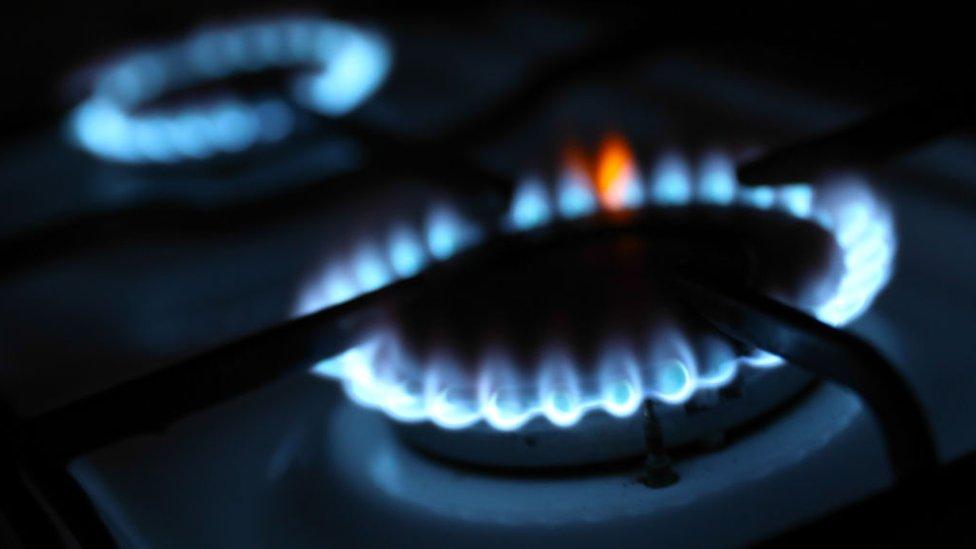
Fewer gas suppliers in Northern Ireland means not all customers have the option to switch companies
Changing utility companies when a better deal is on offer is a good way to save money and promote competition in the market.
However, this is often more complicated in Northern Ireland than other parts of the UK because there are fewer suppliers and less choice.
Six companies supply domestic electricity in Northern Ireland - Power NI, SSE Airtricity, Budget Energy, Bright Energy, Click Energy and Electric Ireland.
The Consumer Council's website, external has an interactive section where customers can compare current tariffs and check if they are getting the best deal.
However, they are all affected by global wholesale energy price rises and all six electricity firms increased their prices this year.
Lack of competition is a particular problem in the gas market in Northern Ireland as there are only two suppliers - Firmus Energy and SSE Airtricity.
Where you live also affects which service you can access as only customers in the Greater Belfast area can chose between the two firms.
Customer in the so-called Ten Towns area can only access Firmus while in the west of Northern Ireland the only option is SSE Airtricity.
Ask your energy supplier for a cheaper rate

Some customers are reluctant to switch utility companies, even when they have the choice to do so.
If switching is not something you would consider, it still may be worth checking with your supplier if you are getting their most competitive rate.
Before you contact them, have your latest bill to hand so you know your current tariff.
It is also worth shopping around first so that if you see a cheaper deal, you can use the offer as a bargaining chip to check if your own supplier will match the lower tariff.
They may not be able to compete depending on your location but there is no harm in asking.
Some firms offer discounts if you agree to manage your account online rather than receiving paper bills.
Choose energy efficient appliances
It may be more expensive to buy newer, more energy efficient appliances but some of them could be a wiser investment in the long run.
A recent study by consumer group Which? assessed the running costs of tumble dryers, washing machines, fridge freezers, ovens and dishwashers.
The results, reported by the BBC, found significant savings can be made over the lifetime of a machine, depending on the model.
The least efficient models in the study were found to collectively cost £490 a year to run while the most energy-efficient cost £154 annually.
One £260 tumble dryer cost £135 a year to run while a more efficient £800 dryer cost just £29 a year.
Put a jacket on
If you have ever complained about being cold at home, you have probably heard that particular piece of advice from the exasperated bill-payer.
Layered clothing could work out cheaper than turning up the thermostat when you feel the chill but there is more than one type of jacket.
Fitting your hot water cylinder with an insulating jacket will save you £18 a year in heating costs, according to the Energy Saving Trust.
Roof insulation is also a cost-effective investment as the trust says a quarter of the heat in your home could be lost through an uninsulated roof.
Draught-proofing windows and doors could save another £25 a year, according to the trust, which has lots of tips on how to prevent heat escaping from your home, external.
Related topics
- Published14 June 2022

- Published11 November 2021
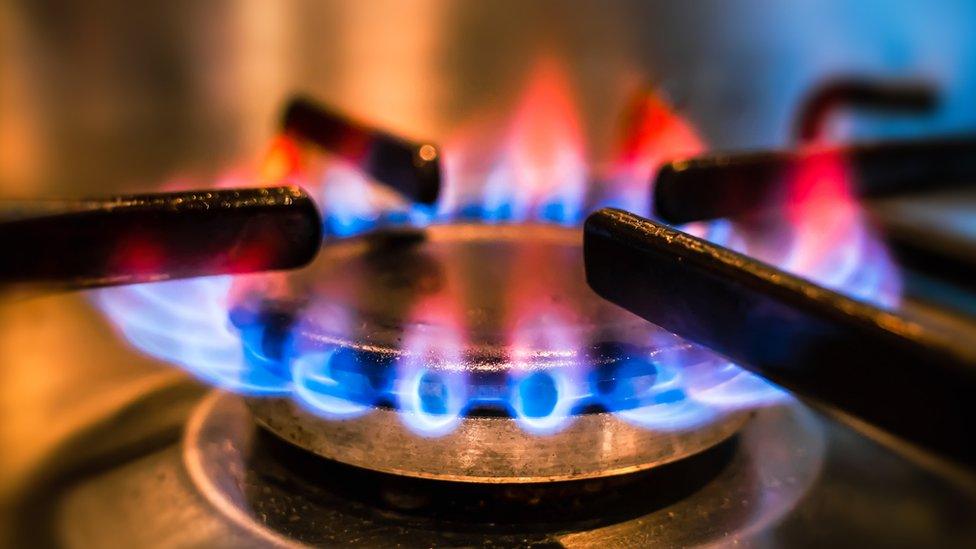
- Published28 November 2023
